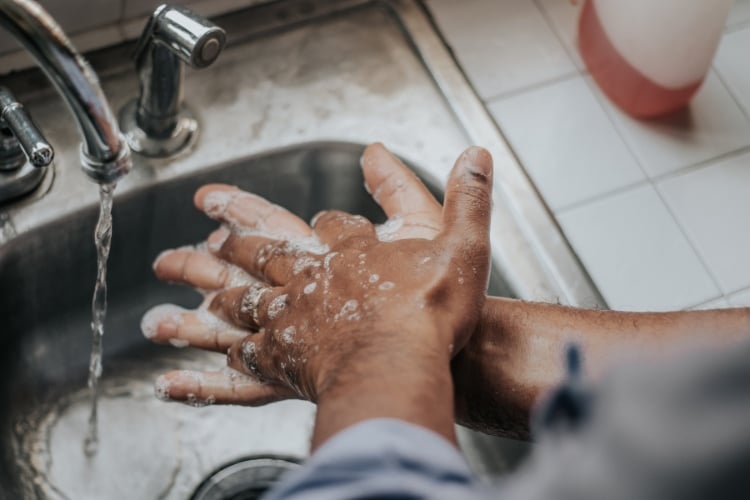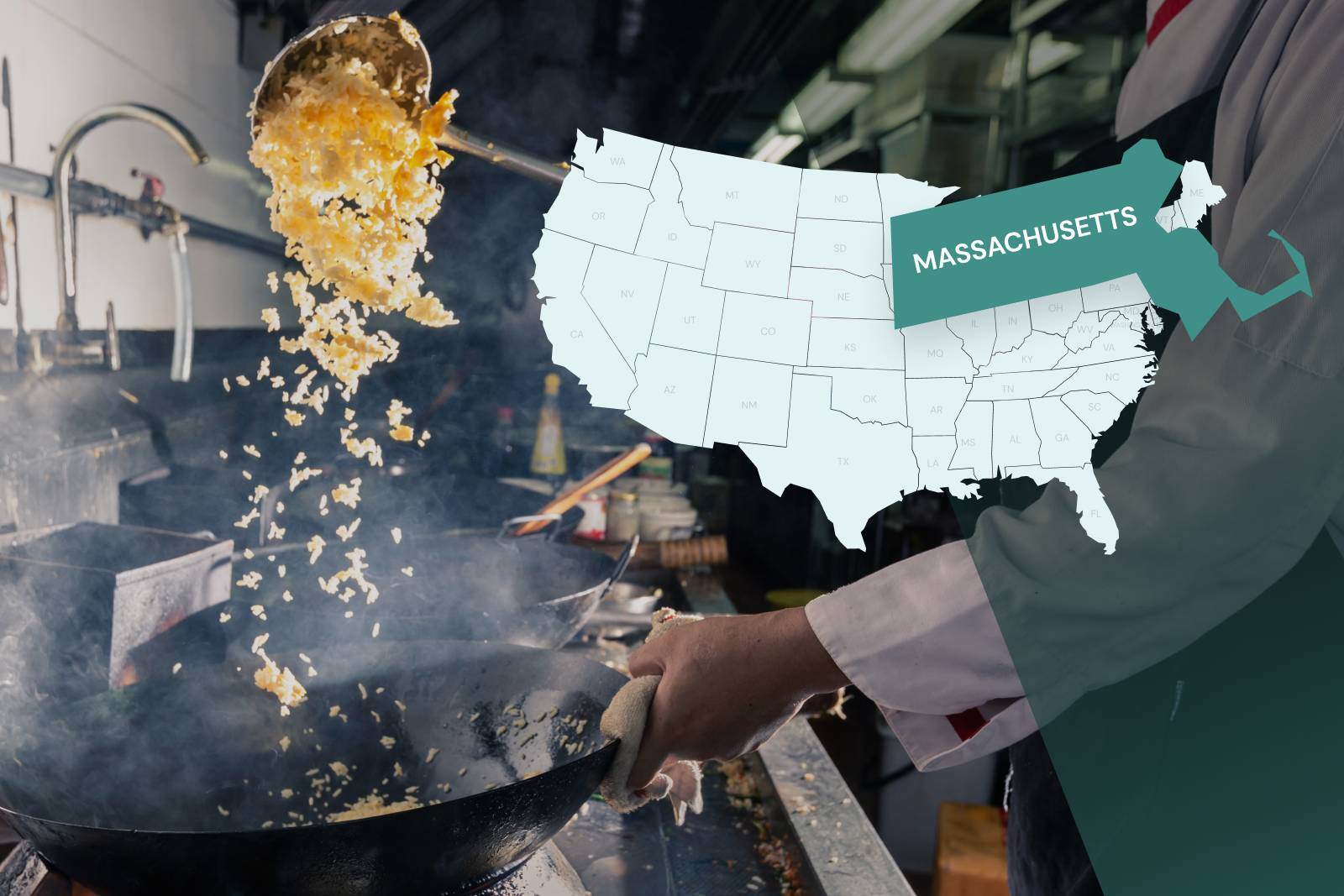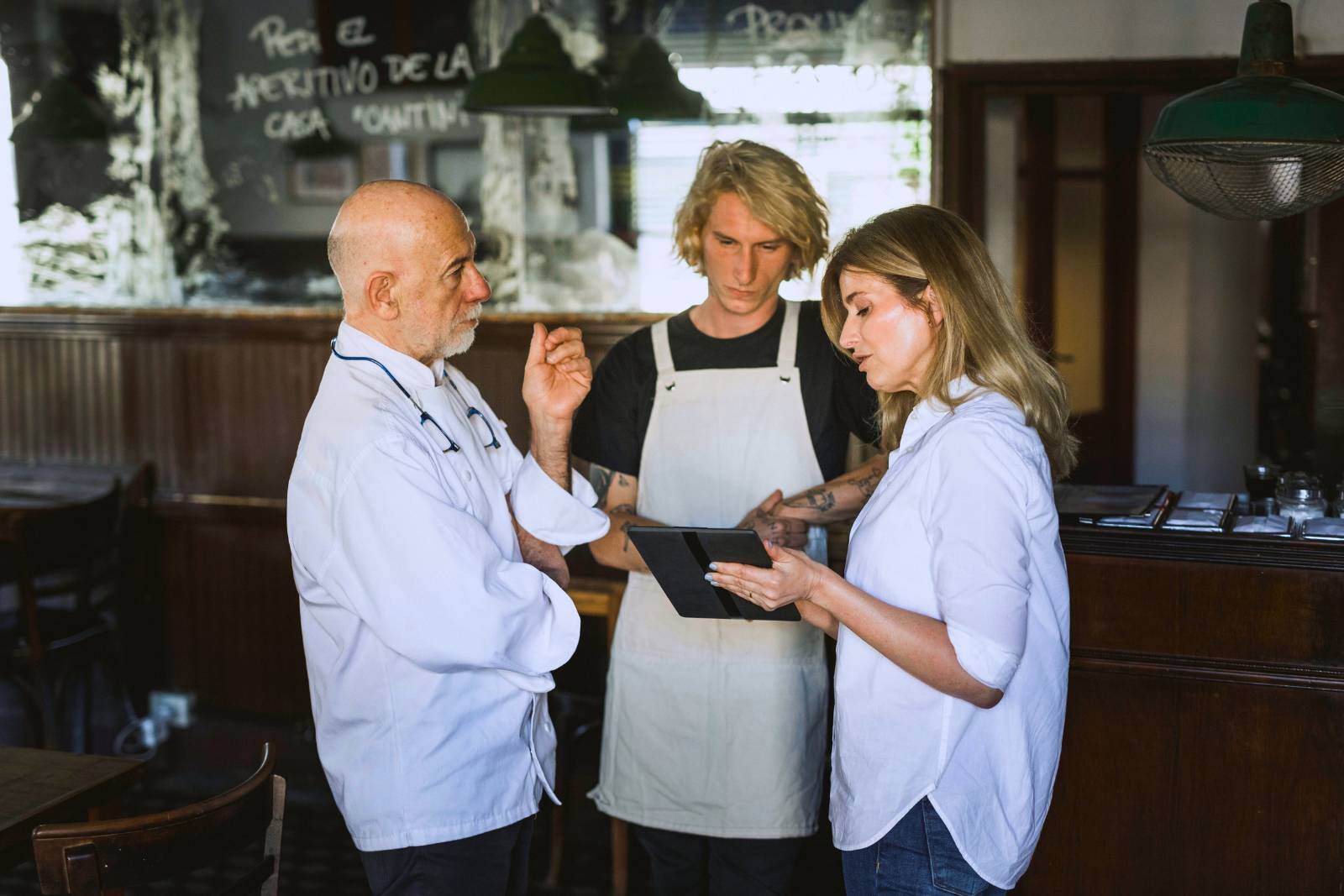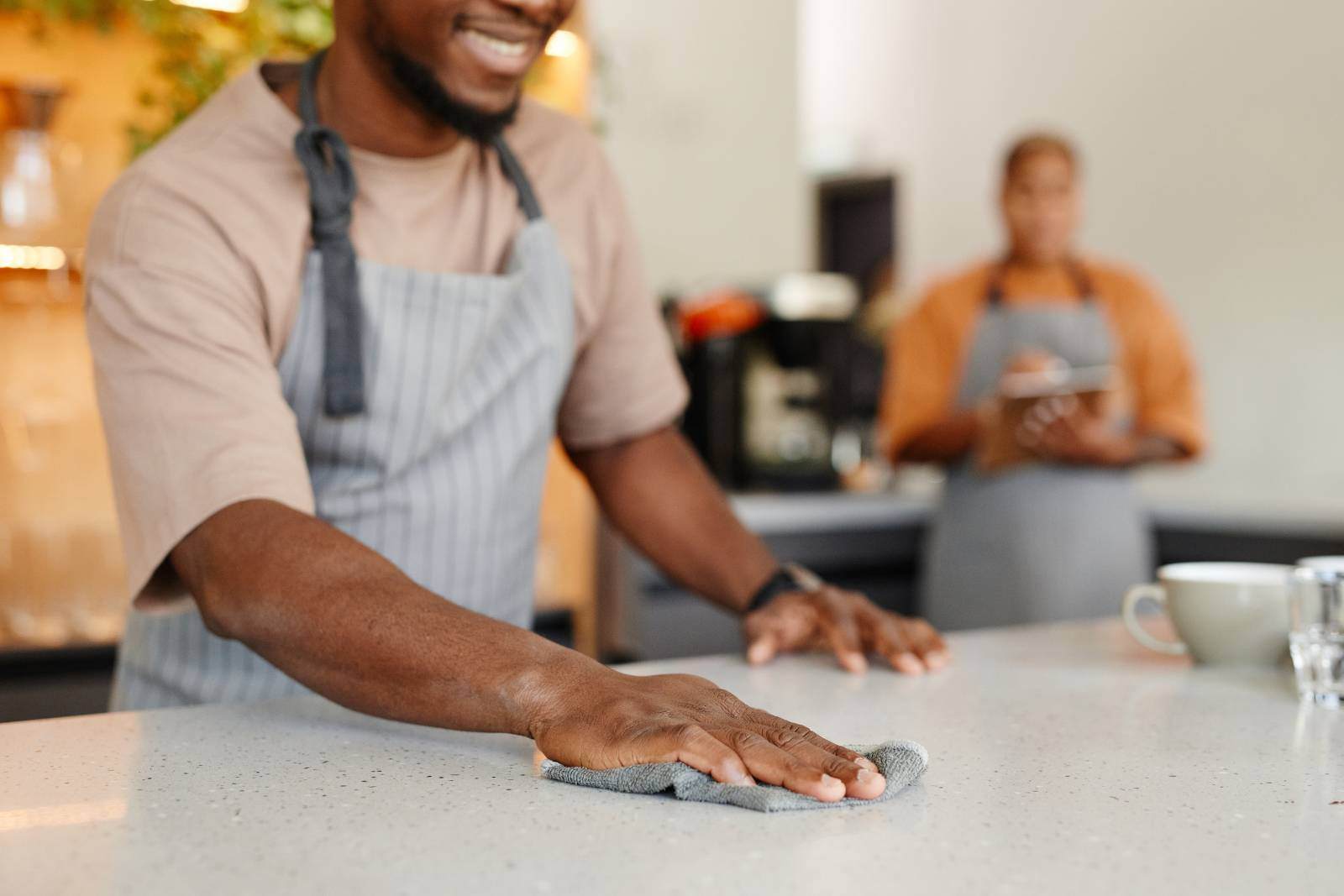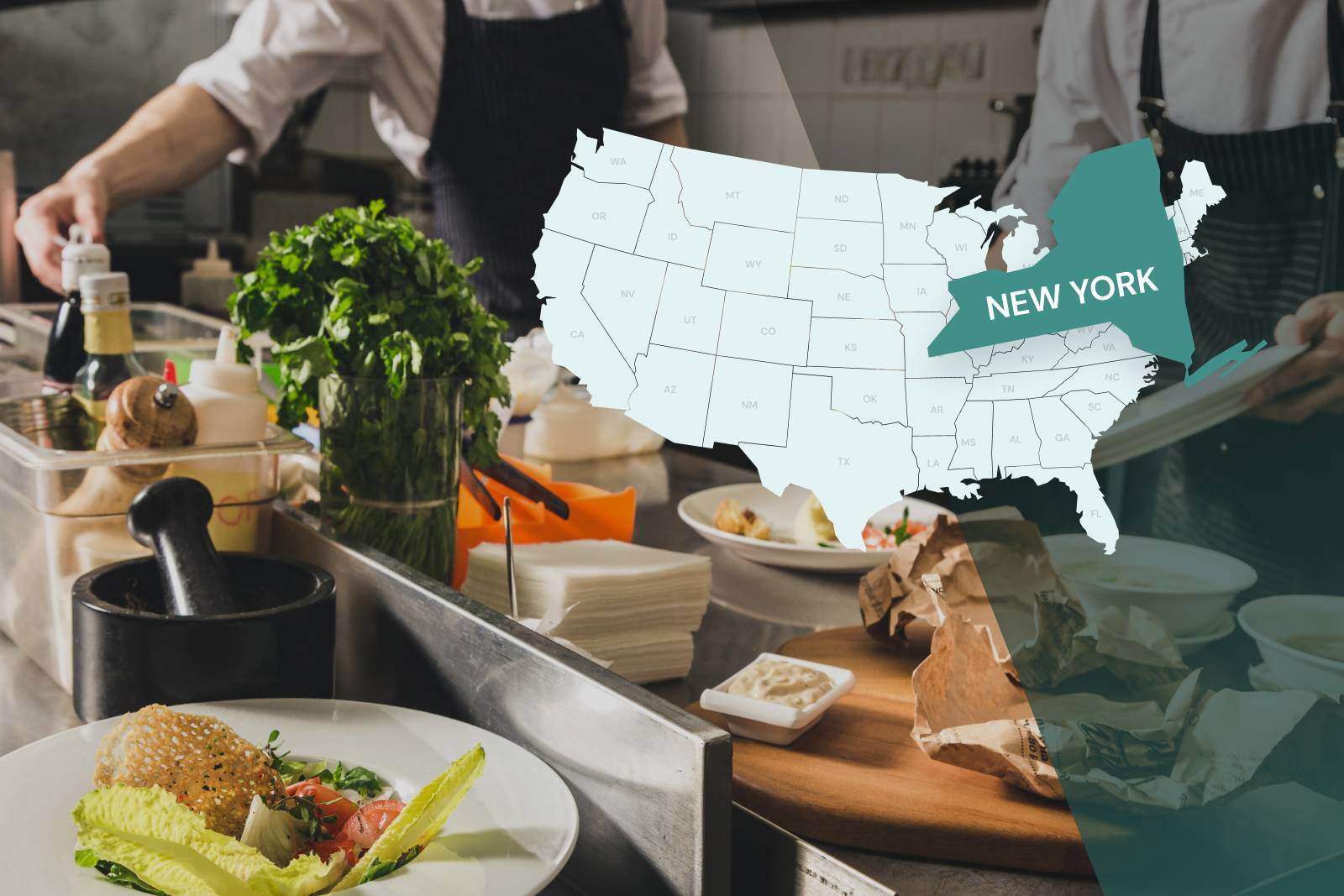Maintaining a high standard for your personal hygiene is critical to ensuring the safety and cleanliness of your food establishment. Not to mention–it works wonders when it comes to maintaining the reputation of your business and making sure your customers have a good impression of everything you have to offer.
Then there's the nitty gritty bottom line–it's just absolutely necessary for good health.
Poor personal hygiene can lead to food contamination, infections, and other health issues for you, your team, and your customers. By implementing good hygiene practices, you'll ensure the health and safety of everyone involved with your establishment and create a positive image for your place of work.
But how do you do that, and what exactly does it mean to uphold strong standards for personal hygiene?
In this guide, we'll cover everything you need to know to maintain personal hygiene in your foodservice establishment:
Why is personal hygiene so important in foodservice?
What does good personal hygiene look like in the restaurant and foodservice industry?
Why is personal hygiene so important in foodservice?
Prevention is your first line of defense against most foodborne illnesses. The most harmful bacteria that can cause illness are often in or on our food.
Chefs, cooks, or food handlers who handle and prepare food can easily spread these bacteria to customers through a lack of proper hygiene practices. According to the World Health Organization (WHO), 10% of people worldwide become sick after eating contaminated food, most of which are caused by bacteria.1 Good personal hygiene can prevent many of these instances.
Cross-contamination is another significant threat and is often caused by seemingly small errors and missteps, such as poor hand hygiene or the use of dirty towels. Maintaining good personal hygiene in the kitchen can help control the spread of bacteria, keeping your customers safe and healthy after their meals.
Not only that, but appearances are everything when it comes to foodservice. Maintaining proper personal hygiene helps you look more professional in the eyes of your customers. Good hygiene practices, including regular hand washing, clean uniforms, and grooming, also help to instill confidence in customers that professional, competent staff are preparing their food.
Remember, restaurants and other food service providers are subject to strict health and safety guidelines enforced by local and national authorities. Failure to comply with these requirements can damage a business’s reputation, result in legal action, and even cause temporary or permanent closures.
And finally, personal hygiene is essential to protect your brand's reputation. One bad experience could result in a viral tweet or bad review online that can damage the reputation you’ve worked hard to build. Taking care of personal hygiene is a vital investment in your future!
What does good personal hygiene look like in the restaurant and food service industry?
When people visit a restaurant, they trust that the food being prepared and served is safe and healthy. Poor hygiene practices can not only jeopardize the health of your customers but can also hurt your business.
Here are some general personal hygiene tips to start implementing today.
1. Wash your hands–we can't say it enough!
Washing your hands is perhaps the most critical step in preventing the spread of germs while working in the food industry. Before touching any food or utensils, you should wash your hands.
It's also important to wash your hands before and after handling money, taking out the trash, and using the bathroom.
2. Don't smoke
If you're a smoker, make sure you're not smoking near any food, food prep areas, or customers. Cigarette smoke carries many toxins that can contaminate the food and pose a health risk to customers. You should also wash your hands and/or use mouthwash after smoking to get rid of any smoke smell.
3. Use gloves or hair nets as required
Have you ever found a hair in a meal you were served at a restaurant? It's not a pleasant experience, right? Hair that falls into food is not only a major turnoff for customers–it's also a huge sanitation hazard.
Some foodservice jobs require the use of gloves or hair nets to prevent contamination. If a hairnet isn't possible or required, keep your hair tied back in a bun or ponytail. If your hair is short, ensure it's neatly combed and styled. Avoid touching your hair while working, too. In some cases, wearing a hat might be appropriate–again, this all boils down to company policy.
The same goes for beards–these should also be well-maintained.
If you're handling food that will be served to customers, it's also important to use gloves to prevent any germs or bacteria from getting onto the food. Remember, though, while gloves are an important personal hygiene tool to have on hand, they are not a substitute for hand washing. They're meant to protect the food–not to keep your hands clean.
4. Keep your nails clean and short
Dirty or chipped nails can be difficult to clean thoroughly and can harbor bacteria. Keep nails trimmed short and clean, and avoid wearing nail polish. If you do wear nail polish, it should be a light or neutral color that won't chip or flake. Some businesses or sectors of the industry do not allow nail polish or fake nails at all–so always be sure to check your health department’s guidance and each individual company’s policies!
5. Jewelry should be at a minimum
While jewelry can be a fun way to jazz up your outfit, it can also get in the way and pose a safety risk. At work, it's best to keep jewelry to a minimum, particularly rings and bracelets. Necklaces and earrings should be small and never dangle into food or equipment.
6. Avoid chewing gum
Chewing gum may seem harmless, but in a restaurant, it can be unsanitary and unprofessional. It's easy for gum to fall out of your mouth while talking or working, and it can be difficult to clean up. Plus, customers may find it unappetizing or distracting.
7. Don't taste food with fingers or utensils that are returned to the food
Tasting food is a good way to get a handle on whether the food you’re cooking is ready to be served or needs some more time–but it’s also important to avoid tasting food with your fingers or utensils that you may return to the food.
You should instead use a clean spoon or fork to taste the food, then dispose of it or put it in the sink to be washed. If you're tasting soups or sauces, you can use a small cup or bowl to sample the food instead of using a spoon that you'll be returning to the pot. This practice will help to prevent contamination and the spread of bacteria.
8. Be mindful of the cleanliness of your clothes
The clothes you wear in the kitchen can also contribute to the spread of bacteria. You should wear clean clothes every day and avoid using dirty or stained aprons or clothing.
Avoid touching your face or adjusting your clothing when working with food. These practices will help maintain the kitchen's cleanliness and prevent contamination.
9. Avoid heavy fragrances
Strong perfumes, colognes, body sprays, or aftershaves can all mask the smell of food and deter you from noticing if a food item has gone bad.
They can also be overwhelming to customers with sensitive noses. Instead, opt for fragrance-free soaps and skincare products to prevent any scent contamination of food.
10. Don't cough or sneeze over food
Coughing and sneezing can spread germs and bacteria in the air. Therefore, it’s important to cover your mouth and nose correctly when you cough or sneeze in the workplace.
Use disposable tissues or your elbow to avoid contaminating surfaces and food. Also, avoid handling food items if you have a cold, flu, or other respiratory illness.
11. Keep spare clothes and other personal items out of the food prep area
Personal items like jackets, bags, and mobile phones can carry germs and bacteria from outside. Therefore, it’s important that you keep them away from any areas where food is being prepared.
Designated lockers and storage spaces can be created for staff members to store their personal items to ensure they do not come in contact with food.
Similarly, you should not be eating or drinking in food prep areas. These personal items, including your food and drink, must be kept away from the kitchen or any other food preparation areas.
12. Cover all wounds with a bandage
Suppose you have an open cut, sore, or other uncovered wound. In that case, it can easily become contaminated and spread bacteria to food or surfaces–not to mention it’s probably not the most appetizing to look at.
Avoiding this is simple: always cover wounds with a clean, waterproof bandage before entering a food service area. If the wound is on your hands, wear gloves over the bandage.
13. Don't wear aprons outside of the kitchen
Aprons are an essential part of a foodservice professional's uniform, but remember that they should only be worn in the kitchen.
Aprons should never be worn outside of the kitchen or foodservice area, as they can carry harmful bacteria that could contaminate food or surfaces. If you must leave the kitchen, remove your apron and put on a clean, fresh one when you return.
14. Always follow Food Code recommendations
The U.S. Food and Drug Administration (FDA) has put strict guidelines in place for food service professionals to follow in order to maintain a healthy and safe environment. Following these guidelines is essential for ensuring that food is prepared, stored, and served in a way that is safe for everyone.
This includes washing your hands often, using gloves when necessary, and properly cleaning and sanitizing all surfaces and equipment. It's important to always follow these recommendations to prevent the spread of harmful bacteria and viruses.
What should I do if I’m sick?
If the COVID-19 pandemic taught us anything, it’s important to keep your distance from other people when you’re sick.
With that said, so many restaurants and other foodservice establishments are in the midst of one of the worst labor shortages in history. So how do you know if you should “suck it up” and head into work–or stay home to ride out the storm?
A lot of it will boil down to company policy. If you’re feeling sick, talk to your manager. Depending on your symptoms or level of exposure, you might be told to stay home or simply to not work with food (if that’s even possible, given your job’s typical duties).
Always report to your manager or shift leader if you’re feeling sick in any way. Certain illnesses, like stomach viruses, are very easily spread and are quite contagious. These can survive for weeks–so it’s best to err on the side of caution.
While you should report any illness you might be experiencing, be extra vigilant about letting your manager know if you suffer from issues like vomiting, diarrhea, jaundice, a sore throat with a fever, or infected wounds or lesions with pus. These are the most concerning symptoms and indicate that there might be a disease present that could easily spread to other workers or customers.
You should also report to your manager if you or someone in your household has been diagnosed with (or is suffering from symptoms suspected to be related to) norovirus, salmonella typhi, E. coli, hepatitis A, shigellosis, or nontyphoidal salmonella.
If you’re sick with vomiting or diarrhea, don’t plan on going to work. Wait to return to work until 24 hours after your symptoms have ended.
Final Thoughts
Good personal hygiene isn’t just about looking your best–it’s about keeping yourself and the people around you safe from potential threats. Following the practices outlined in this blog post can help prevent cross-contamination and the spread of illnesses. It’s up to all of us!
If you want to deepen your food safety knowledge, check out Trust20's products, like our Food Handler Certificate Training.
With the right knowledge, we can all create a safer and healthier food service industry.
Editor's Note: This post was originally published in August 2022 and has been updated for accuracy and to provide further resources to foodservice professionals.
Sources:

